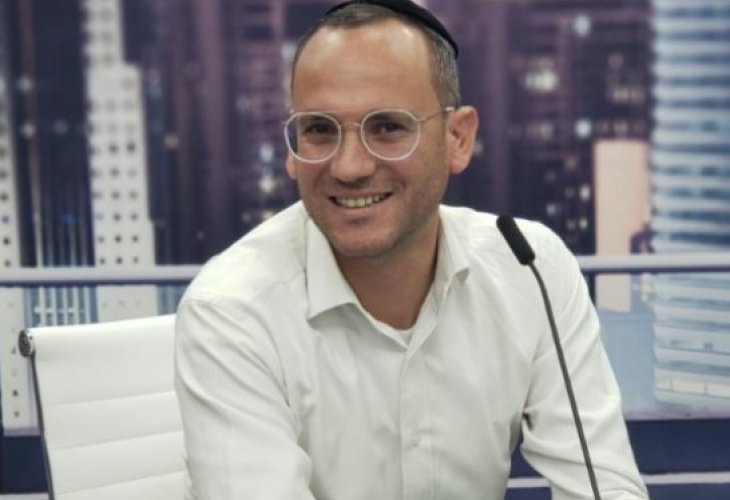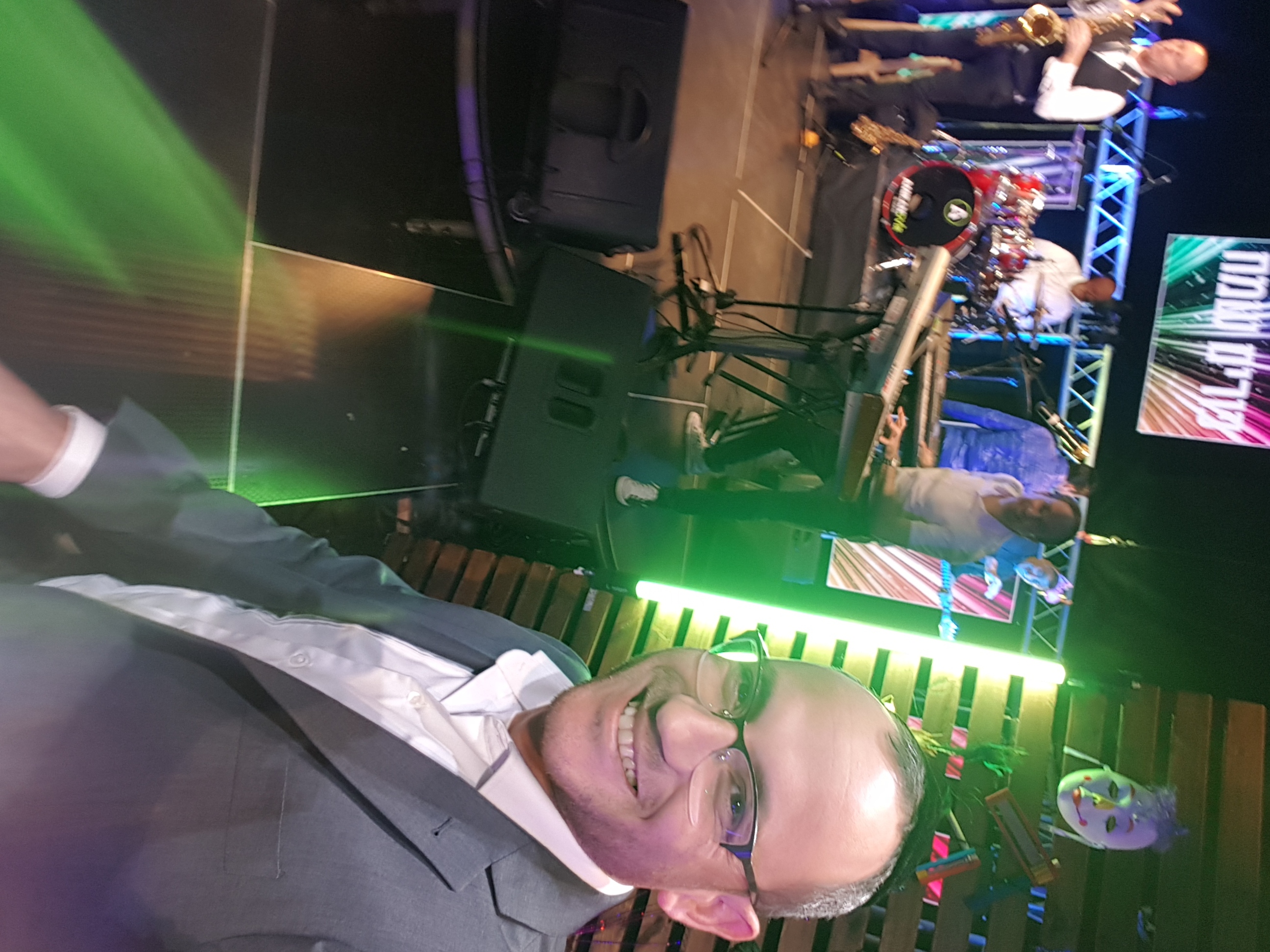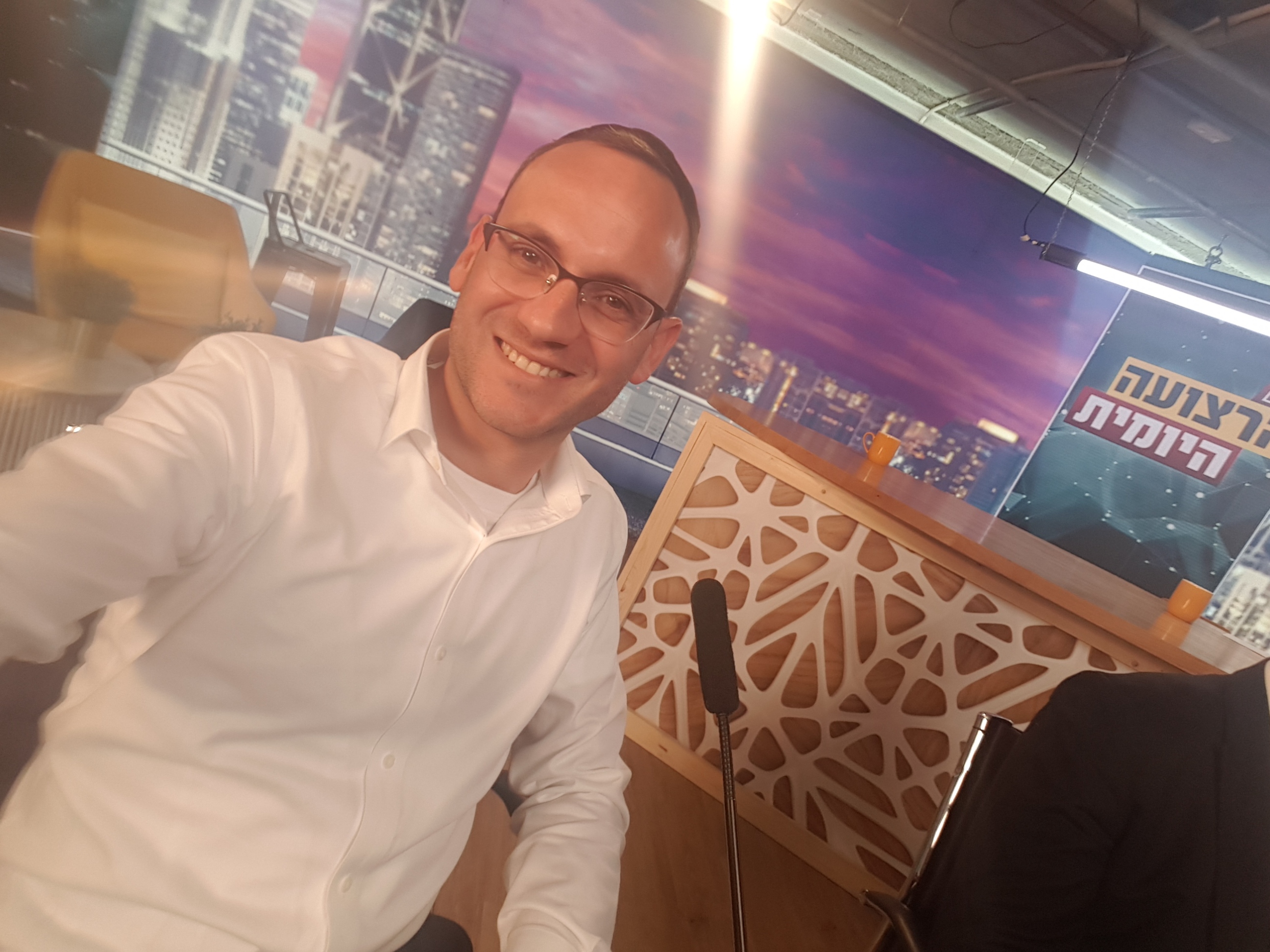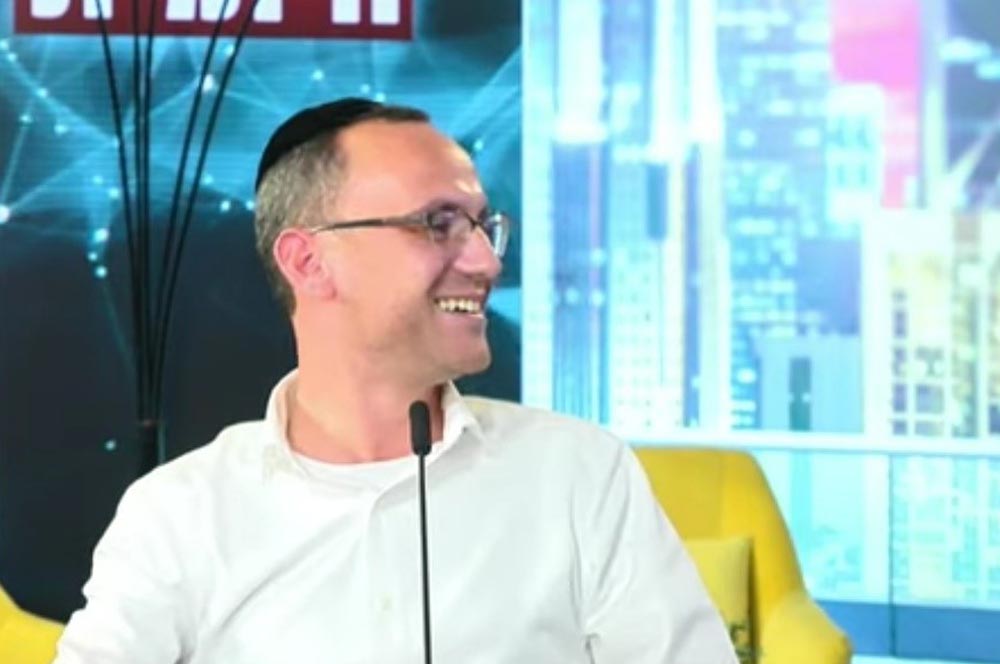The Man Behind Tsophia: Who Are You, Akiva Ben David?
Akiva Ben David, director of 'Tsophia', speaks in an emotional and revealing interview about what happens behind the scenes, and also shares his life's story: "I was in China, but divine providence led me straight to the Hidabroot offices."
 Akiva Ben David, Director of 'Tsophia'
Akiva Ben David, Director of 'Tsophia'The Hidabroot organization is well-known, but when I ask people on the street about the organization's activities, I get these answers: "Hidabroot - it's a leaflet distributed every Shabbat in synagogues". "Hidabroot - it's a website". "Hidabroot - it's providing food to those in need". "Hidabroot - it's a TV channel". "Hidabroot - it's seminars". "Hidabroot - it's questions in Halacha". And so on. Some also said that "Hidabroot is a dialogue between two people," but they were very few. The common denominator of all the respondents is that they were all partially right. Because Hidabroot organization is all of these things...
But when you meet Akiva Ben David - the man behind one of the most important branches of Hidabroot, "Tsophia", you begin to understand what and who is behind everything presented to the public in the highest quality and level. "The viewer receives everything on a silver platter," Akiva Ben David tells me. "On every piece of content we release, the best minds work," he adds with satisfaction. "And don't think that's our only secret, because other media channels also have good minds. The main secret is that we also have the best hearts. People who work with all their heart, full of faith and mission. You don't find that in any other channel."

Akiva Ben David is the grandson of Rabbi Eliezer Ben David ZT"L, who established many institutions in Israel and around the world, including the famous and long-standing "Or HaChaim" seminary in Bnei Brak. Akiva grew up in the Bayit Vegan neighborhood in Jerusalem, and today he directs the Tsophia department in Hidabroot. But behind his story with Hidabroot, there is a story of amazing divine providence. "It happened about thirteen years ago," Akiva recounts. "Hidabroot organization announced it was looking for workers. I thought it might suit me, so I sent my resume and was invited for an interview, at the end of which I was told I was not suitable. Fine, move on. Then I got a job offer in China. I flew there, and started working in the Jewish field, which means addressing the needs of a wandering Jew - kosher food, prayers, mikveh, and everything a Jew needs in his daily routine and during his travels in a foreign country. I worked there for a year until on a clear day, I received a call from a close friend working at Hidabroot, who suggested I come to work for the organization. I told him there were two problems: First, I was currently in China, and the second problem was that even if I were in Israel, Hidabroot had already rejected me after interviewing me a year ago, so why would they want me now? My friend checked the matter with the relevant parties and informed me that the organization urgently needed a worker precisely in the field I could offer, and if I could come from China as soon as possible, I would be accepted and start working. The call was on Tuesday, by Wednesday I was already on a plane back to Israel, and on Thursday I started working at Hidabroot, thanks to Hashem.
From China Directly to Petah Tikva
Initially, Akiva was involved in advertising and marketing the website and channel, and even tried his hand at production. But very quickly, he advanced until he reached a managerial position.
According to him, he also experienced divine providence in this matter. "After working for the organization for several years," he says, "I felt I was reaching a point of fulfillment, a kind of natural weariness. I scheduled a meeting with the CEO, Rabbi David Tupik, where I informed him that I had decided to end my employment with Hidabroot. Then it happened. Some would call it amazing timing, but I call it private divine assistance. During the conversation, Rabbi Tupik received a phone call from Rabbi Zamir Cohen, who wanted to promote a new idea called 'Shabbatot in the Community' – these were Shabbat weekends where Hidabroot coordinated with a community leader or synagogue gabbai to have a rabbi from the organization stay there for the entire Shabbat, delivering lectures, organizing 'Shabbat delight' after the meal, giving lessons on Shabbat itself, and hosting a third meal with community members. All logistics and publicity surrounding this 'mini-seminar' are the full responsibility and funding of Hidabroot, except for arranging accommodation for the guest rabbi.

And how does all this relate to you?
"Wait, don’t forget the situation," Akiva tells me. "As I told you - I am at Hidabroot’s CEO to submit a resignation letter. Then, Rabbi Zamir Cohen calls and asks to promote the Shabbat retreats idea. Then Rabbi Tupik turns to me and asks if I am willing and able to take on this big project. I grabbed it with both hands. That's what you call divine assistance."
Can you tell me, as part of the mini-seminar, what achievements you have reached?
"After I deeply entered the project, we managed, with divine assistance, to reach a situation where almost every Shabbat, four rabbis are spread out in different communities across the country. 'Shabbatot in the Community' are held throughout the country, from Kiryat Shmona to Eilat. It was an amazing satisfaction for me, especially since the impact of Shabbat did not end on Saturday night, as some of the public who participated in the Shabbat continued to maintain contact with the visiting rabbi. This way, people continued to strengthen far beyond that Shabbat, and the rabbi continued to guide them. I had the privilege of organizing around 130 such Shabbats. It is a significant accomplishment and incredible satisfaction. Today the project still exists, but I am no longer managing it."
As mentioned, today Akiva manages the 'Tsophia' project, where he feels he is bringing the people of Israel closer to their Father in heaven. "I am privileged to do special outreach work," he says with excitement.

Why do you think this particular project brings people closer to Judaism?
"It’s not what I think, it’s the dozens of letters piling up on my desk that tell the story of Tsophia, the story of Hidabroot. The stories are about a transformation in people’s homes and far-reaching changes made in their children's education, their marital relationships, and their internal fear of heaven."
The emotion is evident in Akiva’s voice: "You surely remember everyone was shocked by the abuse case of the kindergarten teacher in Rosh HaAyin," he says to me. "It's shocking, of course, but I ask, is letting a child watch violent content not abuse? It’s clearly an abuse of the child’s soul that affects them in the long term and deeply. Media has a lot of influence, so if there is already media at home, why not watch good, valuable, and educational content? That's why there is 'Tsophia'."

Akiva shares about the immediate results of changes happening due to switching to viewing Tsophia. "A family called me, that this past summer purchased the Tsophia converter, and told me that at the beginning of the school year, they transferred their children to Torah education thanks to the content they saw on Tsophia. It’s not the only case, and it doesn’t only happen in Israel, but I also hear about similar things abroad. One day, Rabbi Zamir Cohen asked me to speak with a family from Ireland whose children were being educated in non-Jewish institutions. I followed his instructions and called the family to persuade them to purchase Tsophia, so at least through watching the content, some Judaism would permeate. Not three months pass, and the family sends me an email, stating that due to the content they were exposed to, they decided to transfer all their children to Chabad educational institutions. These are stories that repeat themselves all the time, and that's what makes me happy personally and the organization in general - knowing that we managed to bring about a change whose results are immeasurable."
Information and Judaism Without Borders
What is there about Tsophia that is so interesting to the viewers?
"In Tsophia, there are six live channels airing 24 hours a day: Children's channel, movie channel, music, toddlers, Tsophia, and of course, the Hidabroot channel. Beyond that, there's a V.O.D library with tens of thousands of content, where you can choose what to watch, a huge variety of children’s programs with all the episodes included, National Geographic - the only one narrated in Hebrew, lectures from all the rabbis on all subjects, music video clips, the largest Beit Midrash channel in the world, offering classes in Gemara, Halacha, Mishna, Ethics, Pirkei Avot, and Daf Yomi. There’s also a women’s channel protected with a code, featuring cooking shows - cooking and recipes, women’s discussions, and lectures from women rabbis. Recently, we've introduced studies, workshops, and digital courses, for free. We have daily news from our studios, clean news, without gossip, and thousands of other contents. Everything, of course, is supervised, valuable, and educational. I always say: 'When you have Tsophia at home - you can be calm,' because it ensures that the children are watching good and clean content."

Akiva continues to expand on the tremendous content available in Tsophia: "Tsophia comes in two forms - either as a converter or 'Shiviti screen'. The converter is a small streamer that connects to any screen, while the other option is to purchase the screen through us. The idea of this screen is that it has no external connection options. You can’t connect a USB or disk on key. It only recognizes the Tsophia content. The reason it’s called 'Shiviti screen' is because it’s written on it ‘Shiviti Hashem l'negdi tamid’ (I have set Hashem before me always), so you can see it stands out from all other screens. The screen is 43 inches, a quality LED screen, and comes with an installer who sets up the screen in your home."
The details from Akiva are most impressive. However, in this turbulent time, with the coronavirus raging worldwide and causing everyone to stay home with their children, one cannot avoid asking how the period is passing for them at Tsophia. "It is a very challenging period," Akiva says. "People sit at home and look for content to watch, only then realizing exactly what content their children are watching. As a result, there are many inquiries to Tsophia, and we, thank Hashem, manage to handle the pressure despite the difficult conditions around."
So if I want to order, how do I get 'Tsophia' to my home?
"Anyone who wants the converter must go through a rabbinical committee. The idea of establishing Tsophia was for people who have a TV at home and now want to switch to better content. We don’t want to introduce Tsophia to those without media at home. Therefore, there is a special rabbinical committee on this matter, and anyone who wants Tsophia in their home must fill out a brief questionnaire, taking a maximum of two minutes, after which their request is transferred to the rabbinical committee for a decision."
 Tsophia's Converter
Tsophia's ConverterHow exactly does the rabbinical committee decide?
"There are several guidelines that direct them. The request is considered seriously while maintaining the privacy of the requestor, and in any case, all details remain secure within the rabbinical committee's system, and only they have the right to know it. In some cases, where there is doubt whether Tsophia is suitable for the family, the rabbinical committee asks for approval from the family’s rabbi or neighborhood rabbi who knows the family and the situation, and in a letter, he specifies that the data presented are correct, and to his understanding, responding to the family’s request to purchase Tsophia is beneficial and not harmful."
To join Tsophia, call 073-333-3333 or click here

